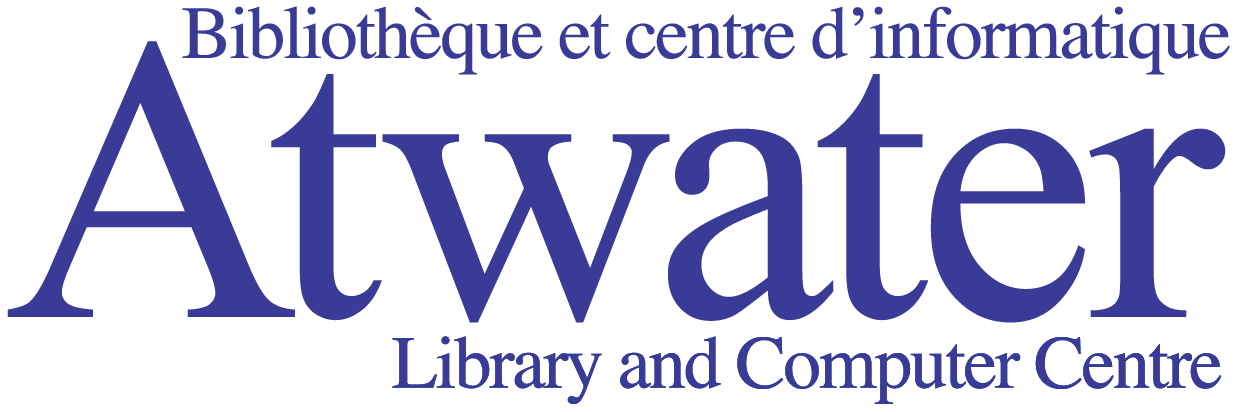Eric Craven is Coordinator of the Digital Literacy Project at the Atwater Library in Montreal, where he also did his graduate studies in Information Science at McGill University. Eric’s work focuses specifically on using digital media to disrupt normative expectations and perceptions in the community. Eric has spent the past 5 years coordinator of the Digital Literacy Project to create programming that directly responds to community needs, helping participants learn to express themselves, find new ways to talk about things important to them, and to help them build their own communities with digital tools. Eric has worked with a wide range of academic and community stakeholders bringing diverse groups of people together, ages 6 through 96, to express themselves through digital art and media. Eric is currently the co-coordinator for the Preventing and Eliminating Cyberviolence against girls and young women; Helping communities respond project and employs his extensive networks to bring people together to develop strategies to combat cyberviolence.
Shanly Dixon, PhD works as a researcher and digital literacy educator. As a digital culture scholar she employs ethnographic and arts based methodologies to investigate people’s engagement with digital culture. She is currently the co-coordinator, researcher and knowledge mobilizer for the Preventing and eliminating cyberviolence against girls and young women; Helping communities respond project where she uses her presentation and writing skills to bring people together to develop and share knowledge around strategies. She has taught courses on topics relating to digital culture at both Concordia University and John Abbott College and is a research fellow at Technoculture Art & Games Research Centre at Concordia University. She is co-editor of the book Growing Up Online and holds an Interdisciplinary Doctorate in Society and Culture from the Humanities Department at Concordia University, Montreal.
Sandra Weber, PhD is Distinguished Professor Emeritus at Concordia University where she taught courses about children’s toys and popular culture, media literacy, gender roles, school curriculum, and digital technologies. Co-founder and director of the Image and Identity Research Collective(www.iirc.mcgill.ca) and author/editor of five books and over 50 research articles, Dr. Weber is interested in interdisciplinary visual research methodologies and the impact that participatory research has on communities. Her current works seeks to involve young people actively in research that is about them. Her latest book, Growing Up Online: Young people and digital technologies, co-edited with Dr. Shanly Dixon, reflects her deep interest in young people’s everyday experiences, and most particularly, girls and young women. Sandra has employed her wealth of experience contributing as a writer and consultant to the Preventing and eliminating cyberviolence against girls and young women; Helping communities respond project.
Bianca Baldo, (B.A., LL.L and LL.M) is the legal and gender equality consultant on the Digital Literacy Project (DLP). She brings to the project over eight years of research, policy, advocacy and training experience in gender equality and human rights in a multitude of cultural environments. She currently works as a researcher and writer with GenderIT.org on the impacts of information and communication technologies on women’s rights, including the tech-related violence against women and empowerment tools. She recently gave a presentation at the International Women's Week - Vanier College on the cyber-violence against women in Canada, its impact on student life and resources available to survivors of tech-related violence. She holds a master in law on international human rights and human trafficking legal protections mechanisms from McGill University, Montreal.
Hayley Crooks is a Ph.D. Candidate in the Faculty of Social Sciences at the University of Ottawa. Hayley employs visual arts-based research methodologies, primarily video-making, to investigate gendered cyber-violence with young people. Recently, she conducted documentary workshops with youth as part of the "Cyber & Sexual Violence: Helping Communities Respond" project. She is a co-author of white papers on cyber-violence and has published in venues such as Cleo: A Journal of Film and Feminism and the Canadian Journal of Communication. Hayley also has a professional background in non-fiction television and documentary production.
Nina Pariser is a Montreal Educator and Artist. She has worked as a teacher at high school and elementary levels and has been a facilitator at the Digital Literacy Project for 5-years. Her interests include arts-based learning and community engaged projects tackling important issues. Nina continues to facilitate knowledge sharing events for the cyberviolence project and employs her creative and artistic skills to help develop strategies that resonate with youth.
Stephanie Fisher is a community-based researcher with 10+ years experience studying gender and digital games culture and industry, and a co-director of Pixelles, a women-in-games non-profit organization based in Montreal. Stephanie's contributions to the Cyberviolence project included writing a literature review section for the needs assessment, as well as organizing and running "Take Care: A Game and Wellness Jam" in February 2016 with co-organizer, Kara Stone.
Lina Branter is a free-lance and YA writer. She is currently taking a leave of absence from her job as librarian at Trafalgar School for Girls, an all-girls private high school in Montreal. She is passionate about making sure the next generation are equipped with the skills necessary to fully engage and participate in building the online and offline world without having to worry about their physical or psychological safety. To this effect, she coordinates a comprehensive digital citizenship program at the school as well as provides opportunities for students to learn to code, design video games and participate in the Technovation Challenge, an international competition for girls aged 10-18 where they must build a prototype of an app to help their community. Lina is also the master of the Atwater Library's Cyberviolence blog directed at Women and Girls, where she curates and comments on issues around feminism and technology. She is especially interested in design solutions to cyberviolence and ways in which girls and women use technology for empowerment.
